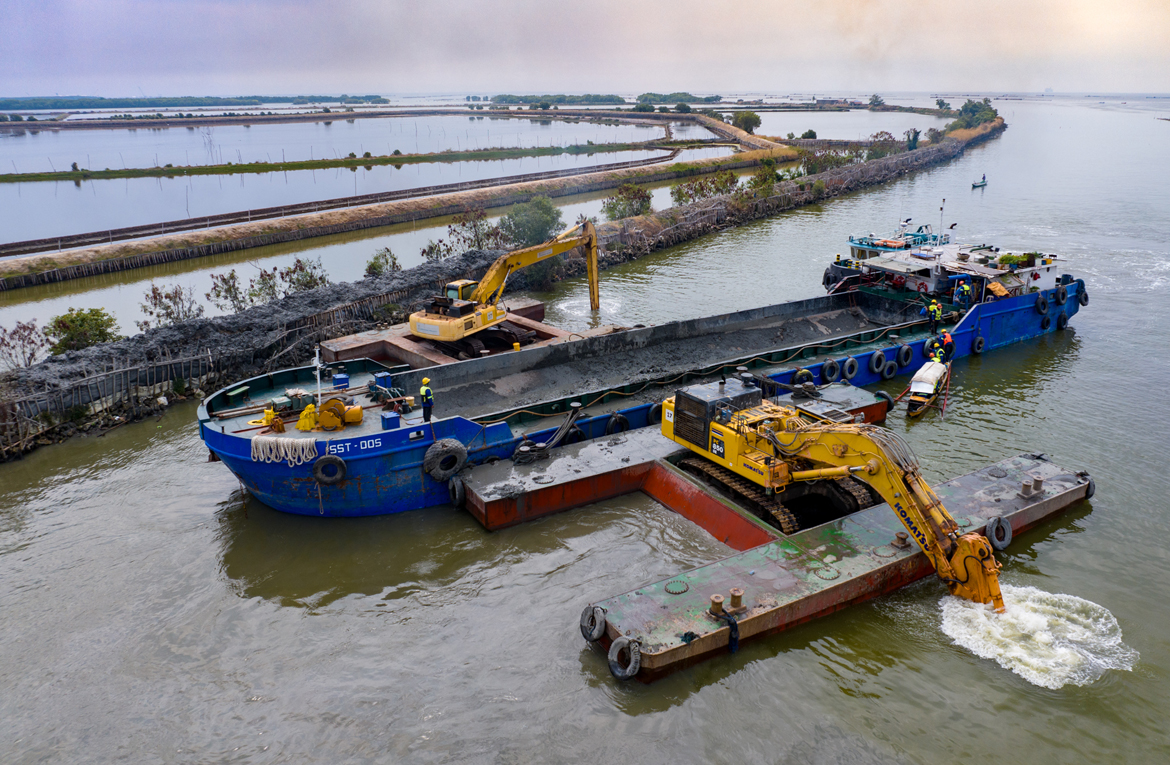This total includes more than 3 million tons recently extracted from over 50 kms of rivers across the flood-prone Bulacan province, as part of a major expansion of the conglomerate’s cleanup initiative. These rivers traverse the cities and towns of Meycauayan, Obando, Bulakan, Bocaue, Marilao, Balagtas and Guiguinto in Bulacan.
This is by far the largest and most extensive river cleanup initiative undertaken by SMC under a long-term, comprehensive effort it started in 2020 to clean up heavily-polluted river systems including the Pasig River, Tullahan River, and San Juan River.
It has successfully removed nearly 1.2 million metric tons of waste from 26 kilometers of the Pasig River; 1.1 million tons from 11 kms. of the Tullahan River, and almost 320,000 tons from the San Juan River, from 2020 to date.
In October last year, SMC announced that it was expanding its river cleanup initiative in Bulacan and to other provinces and cities, including Pampanga, Navotas, Laguna and Cavite, in partnership with the Department of Environment and Natural Resources (DENR), the Department of Public Works and Highways (DPWH) and local government units.
Its efforts to desilt the San Isidro River in San Pedro, Laguna has since yielded 343,836 tons of silt and wastes, to date.
SMC is also gearing up to clean 26 kms. of the heavily silted Pampanga River, which also flows down to Bulacan, and has been identified as a major cause of flooding in both provinces and other nearby areas.
“After four years of continuous effort, we are as determined and committed as ever to continue this advocacy, that has had a positive impact on people, local economies, and our environment. We are very grateful for the support of the DENR, DPWH and our partner LGUs, without whom we would not have achieved so much in such a short time,” Ang said.
“We are also very proud of the hard work and dedication of our river cleanup teams. Their commitment to our advocacy and to the communities, has resulted in the removal of over 6 million tons of wastes and silt to date and covered close to 100 kms. of river channel from the Pasig River, Tullahan River, San Juan River, Bulacan rivers, and San Pedro river–with more to come,” Ang added.
In Bulacan, where SMC has major investments such as the MRT-7 project, the Bulacan Bulk Water Supply project, and the new Manila International Airport project, SMC had committed to help address the province’s long-standing problem with flooding.
Historically, Bulacan has always been flood-prone, due to several factors.
These include its low-lying location, land subsidence due to groundwater extraction and depletion, heavily silted rivers and polluted rivers, and the proliferation in past decades of commercial fishponds along its coastal areas, which impeded the natural flow of floodwaters out to Manila Bay.
“True to our commitment to Bulacan province, our river cleanup efforts are now in full gear. Work is now spread out in nine major river areas. Some of these rivers have become very shallow that their depths were initially measured at only 0.5 to one to two meters. Our target is to deepen them to 3-5 meters, to be able to more efficiently carry out floodwaters, and in some key areas, even enhance biodiversity and ecosystems” Ang said.
Bulacan rivers that were already cleared of silt and waste include: the Taliptip-Maycapiz-Bambang rivers, with a length of 10 kilometers; Meycauayan river from Manila Bay up to NLEX, 12 kms.; Mailad to Bocaue/Sta. Maria River, 8.5 kms.; Guiguinto River up to NLEX, 9.6 kms.; Marilao River, also upstream to NLEX, 4.8 kms; and, Balagtas River, 2.5 kms.
Clean-up is ongoing in Pamarawan river in Malolos, which is also the site of SMC’s 40-hectare biodiversity area for migratory shorebirds, where the initiative has so far covered 1.8 kms of the total 8.9 kms.
